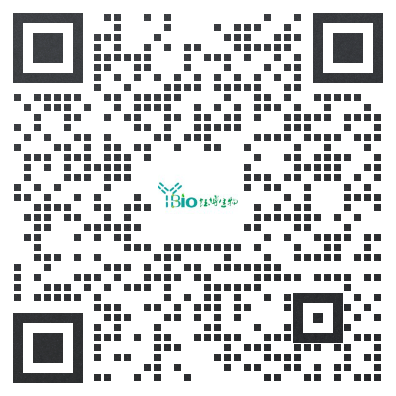
Anti-FADS2/FITC Conjugated抗体
产品名称: Anti-FADS2/FITC Conjugated抗体
英文名称: Anti-FADS2/FITC
产品编号: YB--11516R-FITC
产品价格: null
产品产地: 中国/美国
品牌商标: Ybscience
更新时间: 2023-08-17T10:29:50
使用范围: 科研使用
上海钰博生物科技有限公司
- 联系人 : 陈环环
- 地址 : 上海市沪闵路6088号龙之梦大厦8楼806室
- 邮编 : 200612
- 所在区域 : 上海
- 电话 : 183****2235 点击查看
- 传真 : 点击查看
- 邮箱 : shybio@126.com
- 二维码 : 点击查看
Anti-FADS2/FITC Conjugated抗体
| 产品编号 | YB-11516R-FITC |
| 英文名称 | Anti-FADS2/FITC |
| 中文名称 | FITC标记的脂肪酸脱氢酶2抗体 |
| 别 名 | D6D; Delta(6) desaturase; Delta(6) fatty acid desaturase; DES 6; DES6; FADS 2; FADSD 6; FADSD6; Fatty acid desaturase 2; linoleoyl-CoA desaturase (delta-6-desaturase) like 2; LLCDL 2; LLCDL2; SLL0262; TU 13; TU13; FADS2_HUMAN. |
| 规格价格 | 100ul/2980元 购买 大包装/询价 |
| 说 明 书 | 100ul |
| 研究领域 | 肿瘤 心血管 免疫学 神经生物学 激酶和磷酸酶 |
| 抗体来源 | Rabbit |
| 克隆类型 | Polyclonal |
| 交叉反应 | Human, Mouse, Rat, Chicken, Pig, Cow, Horse, Rabbit, |
| 产品应用 | ICC=1:50-200 IF=1:50-200 not yet tested in other applications. optimal dilutions/concentrations should be determined by the end user. |
| 分 子 量 | 52kDa |
| 细胞定位 | 细胞膜 |
| 性 状 | Lyophilized or Liquid |
| 浓 度 | 1mg/ml |
| 免 疫 原 | KLH conjugated synthetic peptide derived from human FADS2 |
| 亚 型 | IgG |
| 纯化方法 | affinity purified by Protein A |
| 储 存 液 | 0.01M TBS(pH7.4) with 1% BSA, 0.03% Proclin300 and 50% Glycerol. |
| 保存条件 | Store at -20 °C for one year. Avoid repeated freeze/thaw cycles. The lyophilized antibody is stable at room temperature for at least one month and for greater than a year when kept at -20°C. When reconstituted in sterile pH 7.4 0.01M PBS or diluent of antibody the antibody is stable for at least two weeks at 2-4 °C. |
| 产品介绍 | background: Members of the fatty acid desaturase (FADS) family, including FADS1, FADS2 and FADS3, regulate the desaturation of fatty acids by introducing double bonds between defined carbons of fatty acyl chains, thereby playing an essential role in the lipid metabolic pathway. Members of this family share N-terminal cytochrome b5-like domains, C-terminal multiple membrane-spanning desaturase regions and 3 histidine box motifs. FADS2 (fatty acid desaturase 2), also known as D6D, DES6, LLCDL2 or TU13, is a 444 amino acid multi-pass membrane protein that localizes to the endoplasmic reticulum and contains one cytochrome b5 heme-binding domain. Expressed in adult and fetal heart and in adult liver, brain, lung and retina, FADS2 functions as a component of a lipid metabolic pathway and catalyzes the first step in the pathway, namely the formation of unsaturated fatty acids from polyunsaturated fatty acids. Defects in the gene encoding FADS2 are the cause of cause of fatty acid delta-6-desaturase deficiency, an affliction that is characterized by skin abnormalities, corneal ulceration and growth failure. Multiple isoforms of FADS2 exist due to alternative splicing events. Function: FADS2 (Fatty acid desaturase 2) catalyses the biosynthesis of highly unsaturated fatty acids from precursor essential polyunsaturated fatty acids (linoleic and alpha-linoleic acid). FADS family members comprise an N-terminal cytochrome b5-like domain and a C-terminal membrane-spanning desaturase. FADS2 is repressed by dietary highly unsaturated fatty acids. Altered expression of FADS2 may be associated with obesity-associated insulin resistance. Genetic studies have linked FADS2 to IQ and attention-deficit/hyperactivity disorder (ADHD). Subcellular Location: Endoplasmic reticulum membrane; Multi-pass membrane protein Tissue Specificity: Expressed in a wide array of tissues, highest expression is found in liver followed by brain, lung, heart, and retina. A lower level is found in breast tumor when compared with normal tissues; lowest levels were found in patients with poor prognostic index. Similarity: Belongs to the fatty acid desaturase family. Contains 1 cytochrome b5 heme-binding domain. Database links: Entrez Gene: 9415 Human Entrez Gene: 56473 Mouse Entrez Gene: 83512 Rat Omim: 606149 Human SwissProt: Q4R749 Cynomolgus monkey SwissProt: O95864 Human SwissProt: Q9Z0R9 Mouse SwissProt: Q5REA7 Orangutan SwissProt: Q9Z122 Rat Unigene: 502745 Human Unigene: 38901 Mouse Unigene: 162483 Rat Important Note: This product as supplied is intended for research use only, not for use in human, therapeutic or diagnostic applications |
